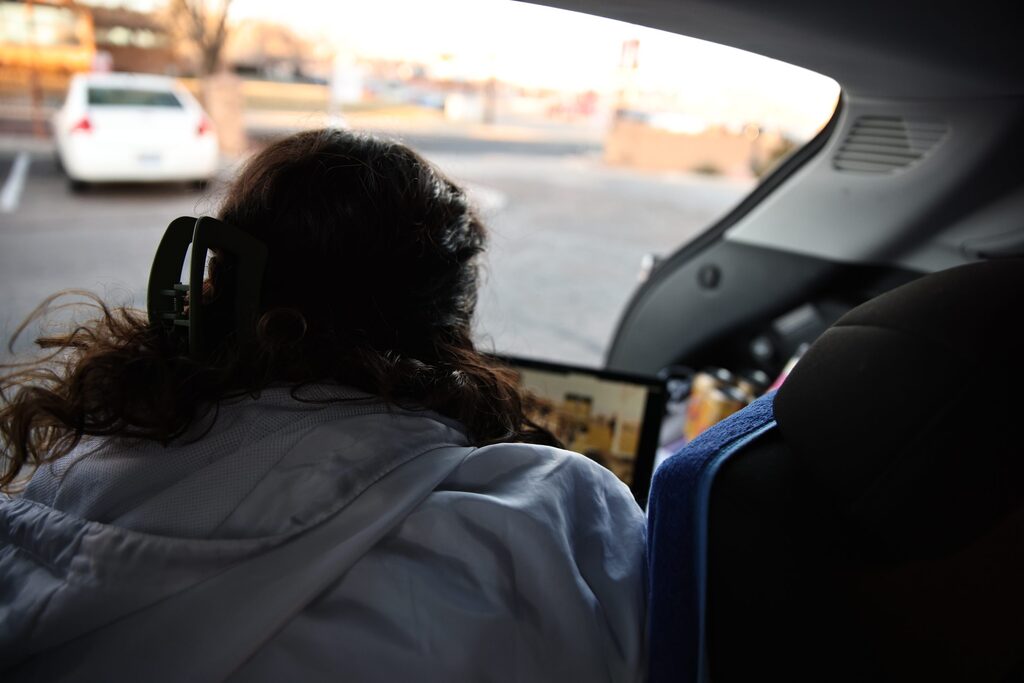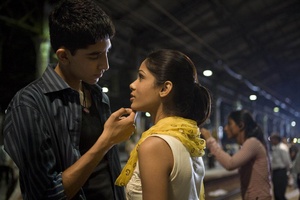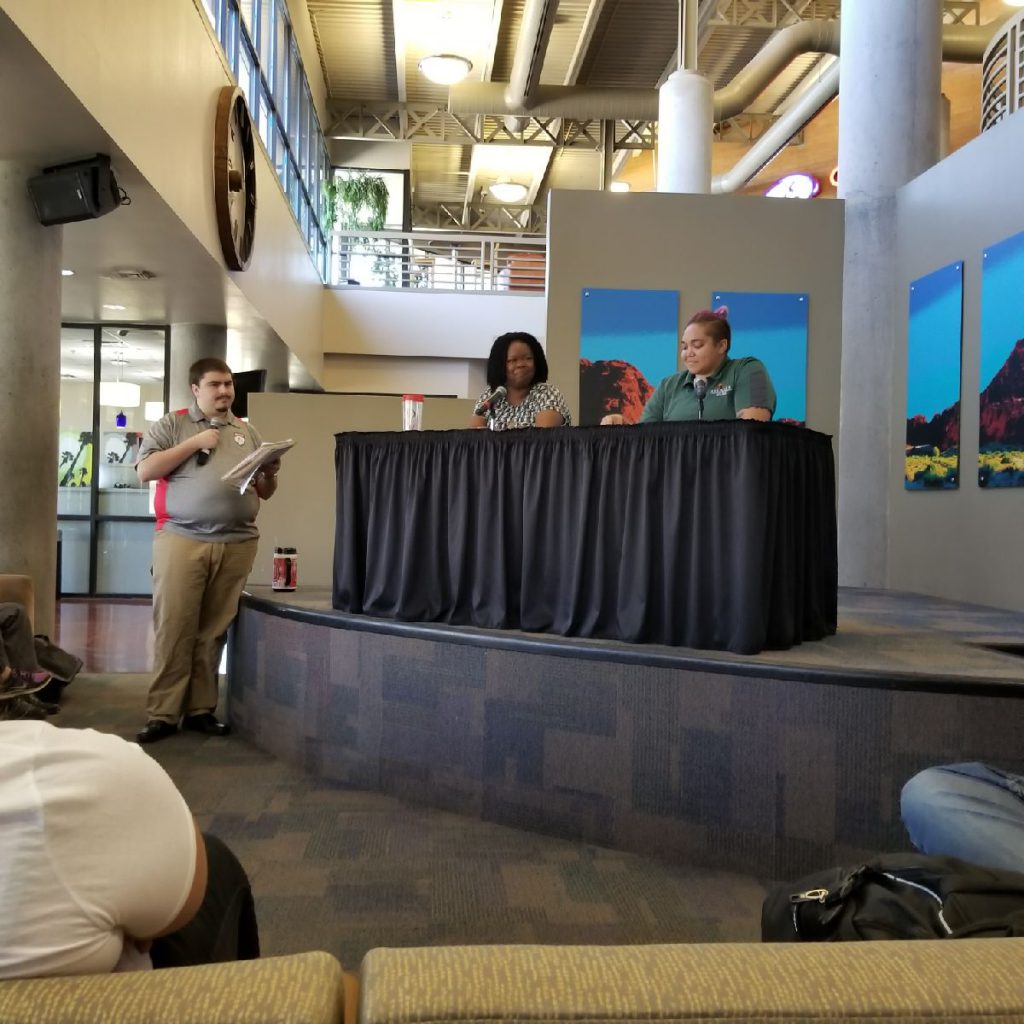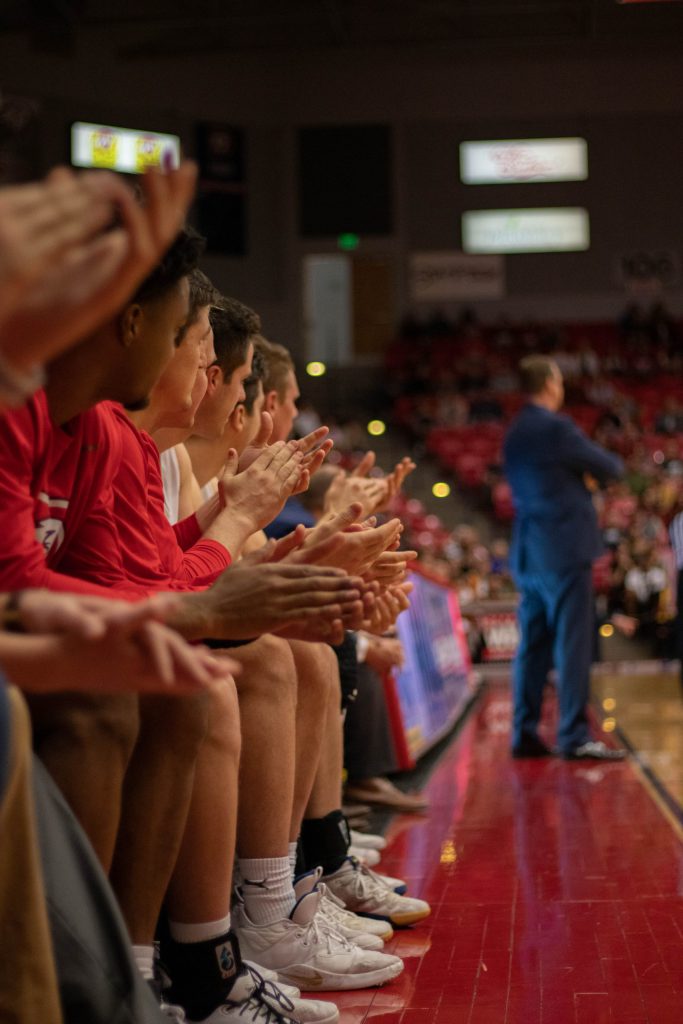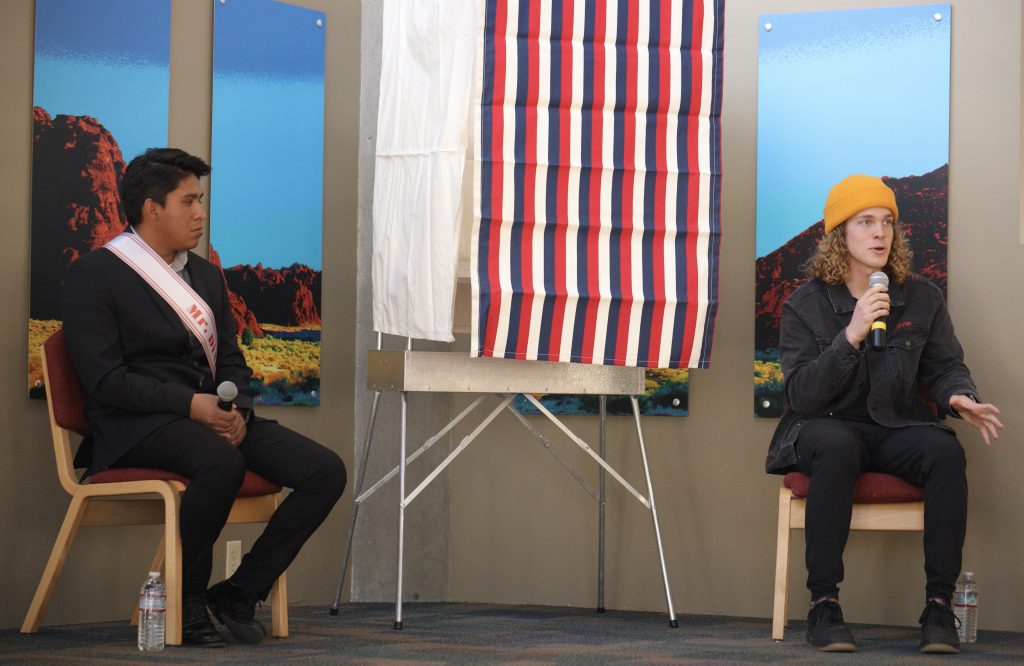The Storm traveled to California this weekend to challenge Azusa Pacific.
Men’s basketball went in after defeating APU in their last matchup while the women’s team lost the last time it played APU.
Men’s Basketball
Coming off three straight victories against ranked opponents, Dixie State headed west to face conference rival No. 17 Azusa Pacific University on Saturday.
DSU defeated APU 97-91 in an overtime thriller on Jan. 17. APU guard Troy Leaf, the Pacific West Conference leading scorer, had 39 points in the prior matchup.
Before Saturday’s game, DSU senior center Zach Robbins, a communication major from Upland, California, said the Storm’s main focus was to slow Leaf down this time around.
“We will definitely be doing something to slow [Leaf] down,” Robbins said. “We’ll incorporate some double-teams and traps to keep the ball out of his hands.”
That strategy seemed to work well in the first half. Leaf scored only three points and DSU entered the break with a four-point lead. The second half would be a different story. Leaf scored 10 straight points for APU, and with just a minute remaining, he hit three clutch free throws to give Azusa its first lead of the game.
Head coach Jon Judkins said the late game collapse was due to a lack of focus.
“We played really well in the first half and had them where we wanted them,” Judkins said. “As a team, we got away from that in the last five minutes and that’s what cost us the game.”
APU hit its final six from shots from the charity stripe to put the game out of reach. The 72-69 win was the Cougar’s first ever victory over the Red Storm.
In the loss, Robbins scored 20 points in front of his hometown crowd, and junior forward Mark Ogden Jr. notched his first double-double as a member of the Storm, with 15 points and 11 rebounds.
Dixie continues its road swing Thursday when it faces Dominican University of California, 8-11. It will be Robbin’s 100th career game, and senior guard DeQuan Thompson will likely become only the fifth player in Dixie State history to join the “1,000 point club” in San Rafael, California (Thompson currently sits at 998).
Women’s Basketball
The women also faced Azusa for the second time this week (DSU lost by 12 on Jan. 17). This matchup came just one day after Jenny Thigpin was officially named DSU women’s head coach.
Junior center Taylor Mann, an English major from Castle Dale, is very excited about the program’s future under Thigpin.
“I believe whole-heartedly in what Coach Thig is teaching us,” Mann said. “I truly believe she can give this program the stability and reliability it has been lacking the past few years.”
Thigpin’s first game at the helm, without the “interim” tag that is, started on the right track. A back-and-forth battle resulted in a one-point game halfway through the first half, but the hot shooting of APU would prove too much to handle.
Azusa went on a 11-0 run and eventually doubled the Storm score. The APU halftime lead was 43-22.
Coming out of the locker room, APU slammed the door immediately, scoring on nearly every possession. The lead quickly became insurmountable, and DSU dropped another conference game to APU 90-60. Thigpin attributes the struggle to the absence of team play.
“It was simply a lack of ball movement,” Thigpin said. “I feel like we got away from playing as a team and it showed.”
Junior guard Chermayne Moore led the Storm with 13 points, and senior center Haleigh Emerine added 10.
A hidden bright spot for DSU has been the improved play of the younger players, says Thigpin. The team is full of freshmen who are getting increased minutes and are now starting to produce accordingly.
“They are very coach-able,” Thigpin said. “They’re doing what I ask of them and that’s showing on the floor.”
The women will play Dominican University, 8-9, on Thursday.

